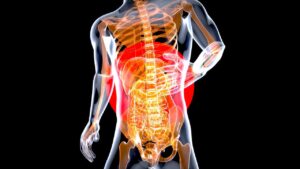
The old adage “you are what you eat” holds a deeper truth – you are what your body digests and absorbs. Digestive health is the cornerstone of overall well-being, influencing not only physical comfort but also mental and emotional vitality. In a world filled with dietary choices and busy lifestyles, prioritizing digestive health is paramount. In this article, we will explore effective strategies for managing and improving digestive health, empowering individuals to nurture their bodies from within.
Understanding Digestive Health:
Digestive health refers to the proper functioning of the gastrointestinal (GI) tract, which includes the mouth, esophagus, stomach, small intestine, large intestine, and rectum. A well-functioning digestive system ensures that nutrients are broken down, absorbed, and utilized, while waste products are efficiently eliminated.
1. Mindful Eating:
Mindful eating involves savoring each bite, chewing thoroughly, and paying attention to the sensations of taste, smell, and texture. This practice aids digestion by allowing the body to adequately process food and signal satiety.
2. Balanced Diet:
A balanced diet rich in fiber, whole grains, lean proteins, healthy fats, and a variety of fruits and vegetables is essential for digestive health. Fiber promotes regular bowel movements and supports a healthy gut microbiome.
3. Stay Hydrated:
Adequate hydration is crucial for digestion and the movement of food through the GI tract. Drinking water throughout the day helps soften stool, prevent constipation, and support efficient digestion.
4. Probiotics and Prebiotics:
Probiotics are beneficial bacteria that support gut health, while prebiotics are non-digestible fibers that feed these bacteria. Consuming foods rich in probiotics (e.g., yogurt, kefir, sauerkraut) and prebiotics (e.g., onions, garlic, and bananas) promotes a balanced gut microbiome.
5. Limit Processed Foods:
Processed and high-sugar foods can disrupt the balance of gut bacteria and lead to digestive discomfort. Minimize the consumption of processed foods and opt for whole, nutrient-dense options.
6. Manage Stress:
Stress can negatively impact digestion by slowing down the movement of food through the GI tract. Engage in stress-reducing activities such as meditation, deep breathing, yoga, or spending time in nature.
7. Practice Portion Control:
Overeating can strain the digestive system and lead to discomfort. Pay attention to portion sizes and listen to your body’s signals of fullness.
8. Regular Physical Activity:
Regular exercise supports digestion by promoting healthy muscle contractions in the GI tract. Aim for at least 30 minutes of moderate exercise most days of the week.
9. Chew Slowly and Thoroughly:
Chewing food thoroughly allows digestive enzymes in the saliva to begin breaking down food before it reaches the stomach. This can ease the workload on the stomach and improve overall digestion.
10. Identify Food Sensitivities:
Some individuals may have specific food sensitivities that affect digestion. Pay attention to how your body reacts to different foods and consider keeping a food diary to identify potential triggers.
Conclusion:
Managing and improving digestive health is a holistic endeavor that encompasses dietary choices, lifestyle habits, and mindful practices. By embracing mindful eating, maintaining a balanced diet, staying hydrated, incorporating probiotics and prebiotics, managing stress, practicing portion control, engaging in regular physical activity, chewing thoroughly, and identifying food sensitivities, individuals can support their digestive systems and experience greater vitality and comfort. Prioritizing digestive health not only enhances physical well-being but also fosters a sense of harmony between mind and body, allowing individuals to thrive from the inside out.
